Comparison of Adjectives:
(1) There are three degrees of comparison i.e. positive, comparative and superlative. Positive Degree denotes the simple quality; as, honest man. Comparative Degree denotes comparison between two things or persons; as, this man is more honest than that. Superlative Degree denotes comparison between more than two things or persons; as, He is the most honest of all men.
(2) The Comparative and Superlative Degree are formed-
(a) By adding er and est to the Positive as
| Positive | Comparative | Superlative |
|---|---|---|
| Broad | Broader | Broadest |
| Clever | Cleverer | Cleverest |
| Deep | Deeper | Deepest |
| Sweet | Sweeter | Sweetest |
(b) By adding only r and st when the Positive ends in e; as,
| Able | Abler | Ablest |
| Large | Larger | Largest |
| Noble | Nobler | Noblest |
| Wise | Wiser | Wisest |
(c) By changing y into i and adding er and est if Positive ends in y preceded by a consonant; as,
| Easy | Easier | Easiest |
| Happy | Happier | Happiest |
Note- If the y of the Positive is preceded by a vowel, the y is not changed into i; as,
| Gay | Gayer | Gayest |
| Grave | Graver | Gravest |
(d) By doubling the consonant before adding er and est, if the positive ends in a single consonant preceded by a vowel; as,
| Big | Bigger | Biggest |
| Fat | Fatter | Fattest |
| Red | Redder | Reddest |
| Hot | Hotter | Hottest |
(e) By placing more and most or, less and least before all Adjectives of more than two syllables and most Adjectives of two syllables; as,
| Beautiful | more (or less) beautiful | most (or least) beautiful |
| Careless | more careless | most careless |
(f) In an irregularly way; as,
| Bad (Ill, Evil) | Worse | Worst |
| Fore | Former | Foremost (First) |
| Forth | Further | Furthest |
| Good (well) | Better | Best |
| Hind | Hindermost | Hindmost, Hindermost |
| Late | Later (time), Latter (order) | Latest, Last |
| Little | Less, Lesser | Least |
| Much (many) | More | Most |
| Near | Nearer | Nearest, Next |
| Old | Older, Elder | Oldest, Eldest |
(3) The following four words are Adverbs in the Positive Degree but Adjectives in the Comparative and the Superlative; as,
| Far | Farther | Farthest |
| In | Inner | Inmost, Innermost |
| Out | Outer, Utter | Outermost, Utmost, Uttermost |
| Up | Upper | Uppermost, Upmost |
(4) Words like top, northern, southern, etc., when used as adjectives have the Superlatives but no Comparatives; as,
- Topmost.
- Northernmost.
- Southernmost.
(5) The Comparative Degree is followed by than; as,
- She is more beautiful than her sister.
(6) But when the Comparative Degree is used for the sake of selection, it is followed by of and preceded by the; as,
- Mohan and Sohan are brothers. The former is the abler of the two.
(7) Article the is generally placed before the Superlative unless it is preceded by a Possessive Pronoun or a Noun in the Possessive Case; as,
- He is the best boy.
- He is the best of all the boys.
- He is his ablest son.
Note- It is correct to say- He is a most respectable person. He is a most foolish man. Here most shows not any comparison but simply the possession of quality in a very high degree.
(8) The following Latin Adjectives of the Comparative Degree are followed by to and not than–
Superior, interior, inferior, junior, senior, prior, posterior, etc; as,
- He is superior to me.
- I am junior to him in service.
- Everything was settled prior to his leaving this place.
(9) The following Adjectives in the plural forms can be used as Nouns-
Superiors, juniors, inferiors, betters, elders, sweets, eatables, Indians, equals, ancients, moderns; as,
- We should be polite to our juniors and respectful to our seniors.
- You should obey your elders.
(10) The following Adjectives are now used in the Positive Degree only and are not followed by ‘than’-
Major, minor, interior, exterior, elder, inner, outer, former, latter, utter, upper, ulterior; as,
- It is a major issue.
- It is a minor problem.
- Here is the inner room of the house.
- Let us go to the upper storey.
Note- Junior, senior, inferior, superior, etc., are also used in the Positive Degree; as,
- He is our junior (or senior) clerk.
- Do you want a superior (or inferior) cloth?
(11) Certain Adjectives preceded by the are used as Nouns in the plural; as,
- The rich (The rich people) should help the poor (the poor people).
- A poet loves the good, the true and the beautiful (what is good, true and beautiful).
- Let us hope for the better (the better times).
- I am prepared for the worst (the worst circumstances).
(12) The words prefer and preferable are used as Comparatives but are followed by to; as,
- This pen is preferable to that.
- I prefer this coat to that.
(13) The following Adjectives do not admit of comparison because their sense is already Superlative-
Complete, chief, circular, entire, extreme, excellent, empty, full, ideal, perfect, round, square, unique, universal, as,
- A unique opportunity.
- Full or empty stomach.
- Extreme poverty.
- A universal truth.
- An excellent plan.
(14) Double Comparative and Superlatives must be avoided; as,
| Incorrect | Correct |
|---|---|
| He is the most best boy of our class. | He is the best boy of our class. |
| You are more cleverer than I. | You are cleverer than I. |
Note- But it is correct to say- the lesser of the two evils. Double Comparative is allowed in idiomatic expressions.
(15) Don’t use the Comparative or the Superlative Degree unless it is required; as,
| Incorrect | Correct |
|---|---|
| He is a best boy. | He is a good boy. |
| Jammu is hot than Kashmir. | Jammu is hotter than Kashmir. |
(16) To compare two qualities in the same person or thing, we use more and not the usual Comparative form; as,
| Incorrect | Correct |
|---|---|
| Sita is abler than wise. | Sita is more able than wise. |
| This book is dearer than useful. | This book is more dear than useful. |
(17) In order to emphasize the comparison words much, very much and far can precede the Comparative and words very and by far the Superlative; as,
- He is much stronger than I.
- You are far superior to him.
- Rashid is by far the ablest boy in the class.
Note- Sometimes the suffix ish is added to the Adjectives to increase or lessen their significance; as,
- This sheep is of blackish colour (not so black).
- His hair has grown greyish or whitish.
(18) Before a Noun qualified by other or before the Pronoun others, we use the Comparative and not the Superlative; as,
- Kashmir is more beautiful than any other place in Asia.
- He is stronger than all others. or He is the strongest of all.
Note 1- When a comparison is made, the thing compared must always be excluded by using the word other, etc.
| Incorrect | Correct |
|---|---|
| Solomon was wiser than any man. | Solomon was wiser than any other man. (Any man would include Solomon also. So how can he be wiser than himself? We, therefore, write any other man, which excludes Solomon). |
| Shakespeare is greater than all poets. | Shakespeare is greater than any other poet. or Shakespear is the greatest of all poets. |
| The climate of Kashmir is better than any place in Asia. | The climate of Kashmir is better than that of any other place in Asia. (Because the climate of Kashmir is better than the climate of any other place, and not any place.) |
Note 2- Use than, and not but or except after other, otherwise, and rather.
| Incorrect | Correct |
|---|---|
| There was no other book except this. | There was no other book than this. |
(19) Some Important Distinctions-
(a) Older and Oldest are used of persons or things. Elder and Eldest are used of persons, usually in comparing members of the same family. Older is followed by than. Elder is never followed by than.
- Hari Krishna is the oldest memebrs of our club.
- He is the eldest members of his family.
- She is older than Sita.
- She is my elder sister.
Note 1- When two numbers of the same family are compared by the use of than, older and not elder must be used.
| Incorrect | Correct |
|---|---|
| Mohan is elder than his sister. | Mohan is older than his sister. |
| He is the older of the two brothers. | He is the elder of the two brothers. |
Note 2- She is my oldest daughter (i.e., oldest living daughter).
She is my eldest daughter (i.e., first born).
(b) Later and Latest refer to time, while Latter and Last refer to position or order; Later is opposed to earlier and latter to former.
- You came later than I.
- Mohan and Sohan fell out. The latter (Sohan) beat the former (Mohan).
- Mohan, Sohan and Sham quarrelled. The last (Sohan) was at fault, while the first (Mohan) was quite innocent.
- What is the latest news from the war-front?
- He left Srinagar by the last bus.
(c) Farther means more distant; Further means something more in advance or additional; as,
- Delhi is farther from Srinagar than Jammu.
- There is a kitchen at the further end of the house.
- No further discussion is to be held now.
(d) Less and Lesser refer to quantity only, while Fewer refers to number; as,
- They need less than twenty seers of rice.
- No fewer than twenty boys were present.
- Of the two evils, let us choose the lesser.
(e) First denotes order or position. Foremost means most important or prominent; as,
- Rashid stood first in the class.
- Aditya is the foremost leader of today.
(f) Outer denotes position, Utter denotes degree; as,
- Have you seen the outer side of the house?
- In the examination he proved an utter failure.
(g) Nearest denotes distance, Next denotes position or order in time of space.
- This is the nearest way to our school.
- He sat next to me in the meeting.
- Next time I will lend you a book.
(h) I love you more than him. (I love you more than I love him.); I love you more than he. (I love you more than he loves you.) Both the sentences are correct.
Some Common Mistakes with the Comparison of Adjectives:
| Incorrect | Correct |
|---|---|
| This is more interesting of all the books. | This is the most interesting of all the books. |
| Who is tallest, you or I? | Who is taller, you or I? |
| Of the two brothers, he is the best. | Of the two brothers, he is the better. |
| He is junior than me by a year. | He is junior to me by a year. |
| There were no less than fifty boys. | There were no fewer than fifty boys. |
| Ahmed is more cleverer than Bashir. | Ahmed is cleverer than Bashir. |
| Kalidas is best Indian dramatist. | Kalidas is the best Indian dramatist. |
| From the three he is more clever. | He is the cleverest of the three. |
| Mohani is growing strong every day. | Mohani is growing stronger every day. |
| From the two he is the cleverer. | Of the two he is the cleverer. |
| This plan is more preferable than that. | This plan is preferable to that. |
| Rich should help the poors and feed the hungries. | The rich should help the poor and feed the hungry. |
| His ways are different than mine. | His ways are different from mine. |
| If he does not turn up, so much the good. | If he does not turn up, so much the better. |
| I know nothing else than this. | I know nothing else but this. |
| I do not know any other thing but this. | I do not know any other thing than this. |
| We left by the latest (or the nearest) train. | We left by the last (or the next) train. |
| Our examination starts on next Monday. | Our examination starts on Monday next. |
| The Ganges is the largest of any river. | The Ganges is the largest of all rivers. or The Ganges is larger than any other river. |
| My dog is bolder than clever. | My dog is more bold than clever. |
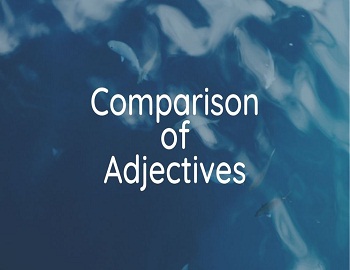
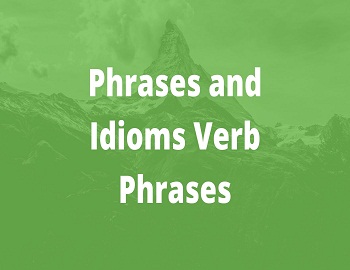
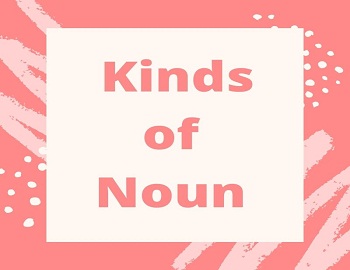
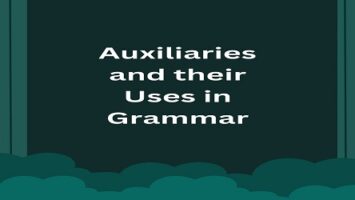
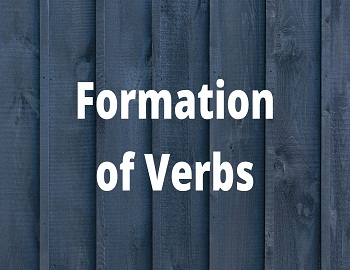
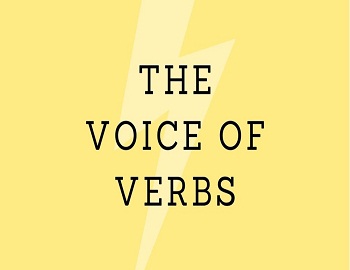

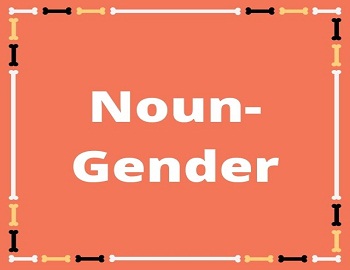

Comments (No)